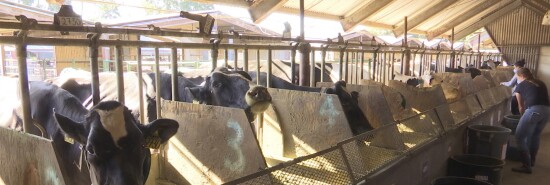
Animal activists are trying to hijack the farm bill
Jack Hubbard
Americans love to eat meat. In fact, 70% of the public consider themselves meat lovers. Unfortunately, radical climate activists are taking aim at their diet preferences.
Last month, the American Society for the Prevention of Cruelty to Animals announced that it is leading a coalition to demand that U.S. lawmakers adopt policies that target traditional animal agriculture. The alliance, which includes the Humane Society of the United States and other pro-vegan groups, is intending to use the 2023 farm bill as the vehicle to impose these anti-meat policies on the public.
Radical animal rights groups build supporters by claiming their mission is to prevent the abuse of cats and dogs. But that admirable objective is just a Trojan horse. The ASPCA recently took an aggressive turn toward advocating fringe policies that target the food supply chain. The goal is to reduce or eliminate meat consumption altogether.
The demands include a national ban on new or expanded large animal-feeding operations, increased federal regulation of meat marketing, and subsidies for farmers who transition from meat to plants. All of these changes would lead to skyrocketing meat prices and increased inflation. The ballooning costs would disproportionately hit low-income households, which are already stretched past their limits.
America is home to the most affordable food supply in the world. Unlike in other parts of the world, where meat is reserved for the wealthy, low-income people are more likely to eat beef than their high-income counterparts. The dinner table has never been an area of inequality in the U.S. But the coalition of anti-meat crusaders is working to change that.
The activist groups, while radical, are not stupid. They understand that the public is not going to give up meat overnight. So, they move in inches, waging wars both culturally and legally.
On the culture front, liberal activists have worked to create “meatless Mondays” in public schools, prisons, and homeless shelters as part of an effort to lower the carbon footprint of these facilities. They promote the development of trendy ultra-processed “plant-based” products that have more sugar and sodium, while at the same time containing less protein. Simultaneously, they encourage the production of lab-grown meat, which carries a luxury price tag most could never afford.
Many European countries have already adopted such food production policies, including limiting the use of maternity pens in the pork supply. That very issue is being discussed at the U.S. Supreme Court, where a decision is imminent.
If the U.S. continues to slide in the wrong direction, Europe could provide an accurate glimpse of our future. And the crystal ball does not fill me with optimism.
One study found that an average shopping cart of staples such as milk, eggs, potatoes, fruits, vegetables, and meats would set someone back roughly $28. The same basket of goods cost $35 in Norway and $48 in Switzerland.
To make matters worse, our food supply is key to our national security. If they regulate meat out of production, the public will become dependent on whatever country is smart enough not to allow these radicals to control their production. We watched what happened when Europe allowed its energy policy to be dictated by environmentalists. Nothing emboldened Putin more.
Bottom line: Radical animal rights and environmental groups are coming for the food supply chain, an attack that will usher in an era of inequality at the dinner table. The 2023 farm bill is one opportunity for them to make incremental progress. So, when the activists come knocking, lawmakers should remain clear-eyed about their objective.
Jack Hubbard is a partner and owner of Berman, an advocacy firm in the D.C. area. He regularly provides advice and counsel to leaders in the agricultural sector.
